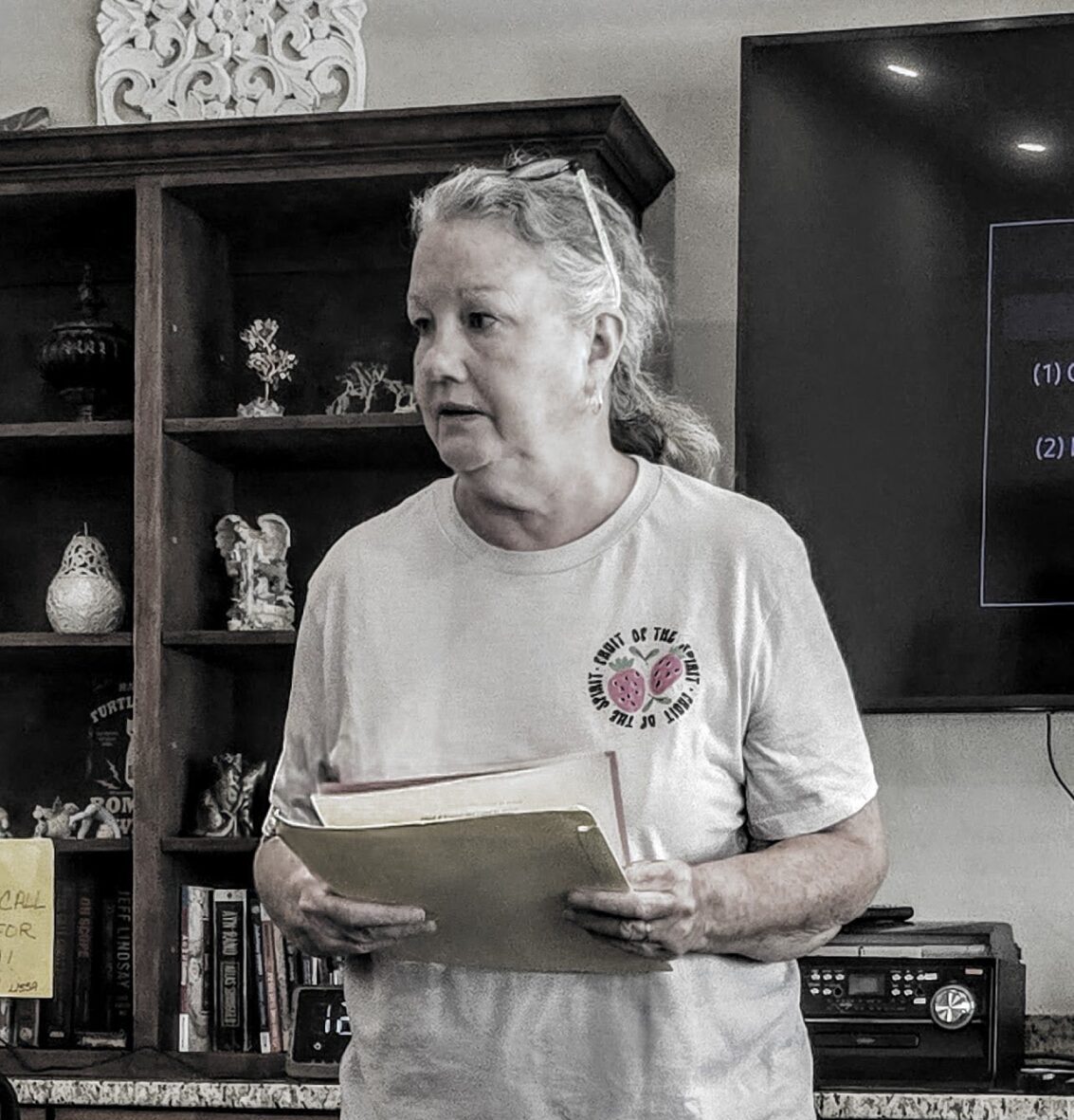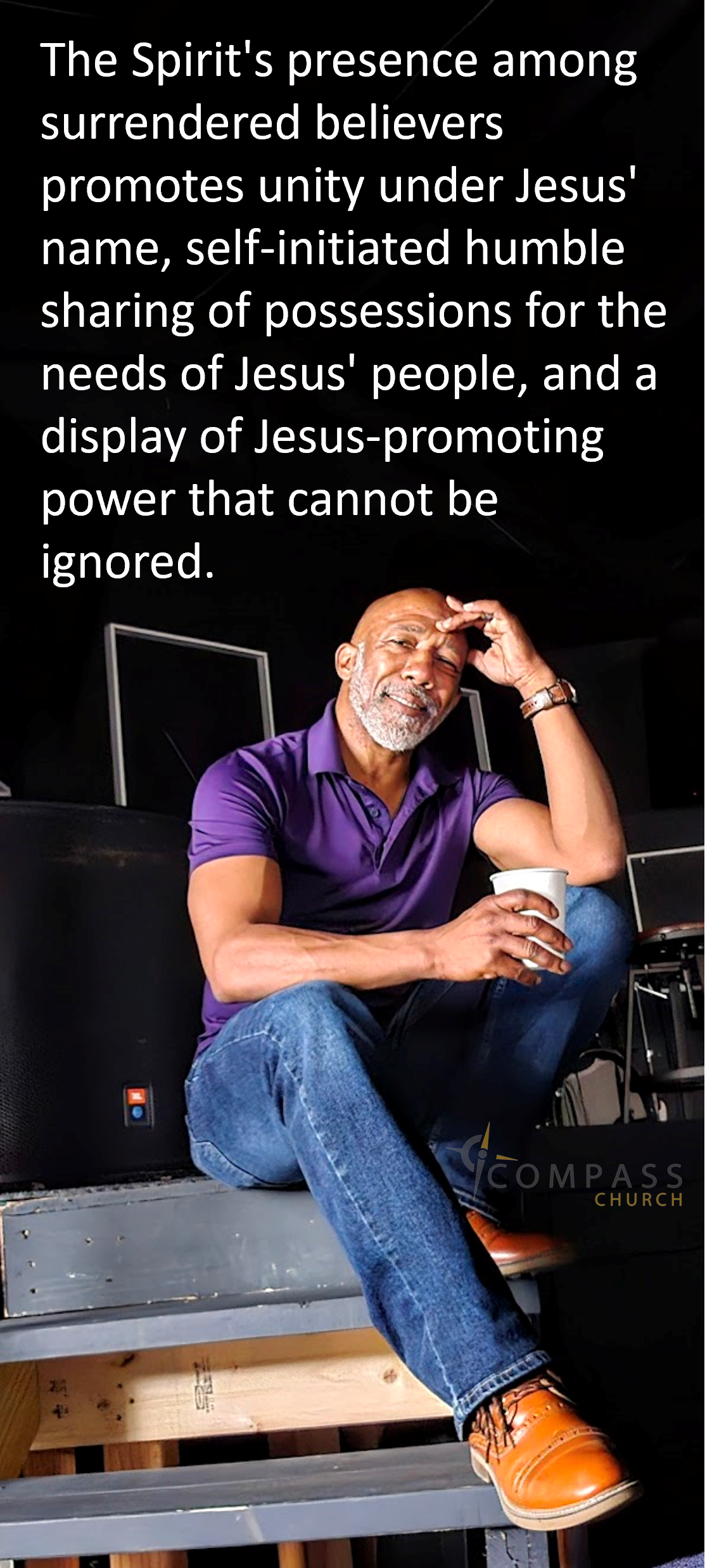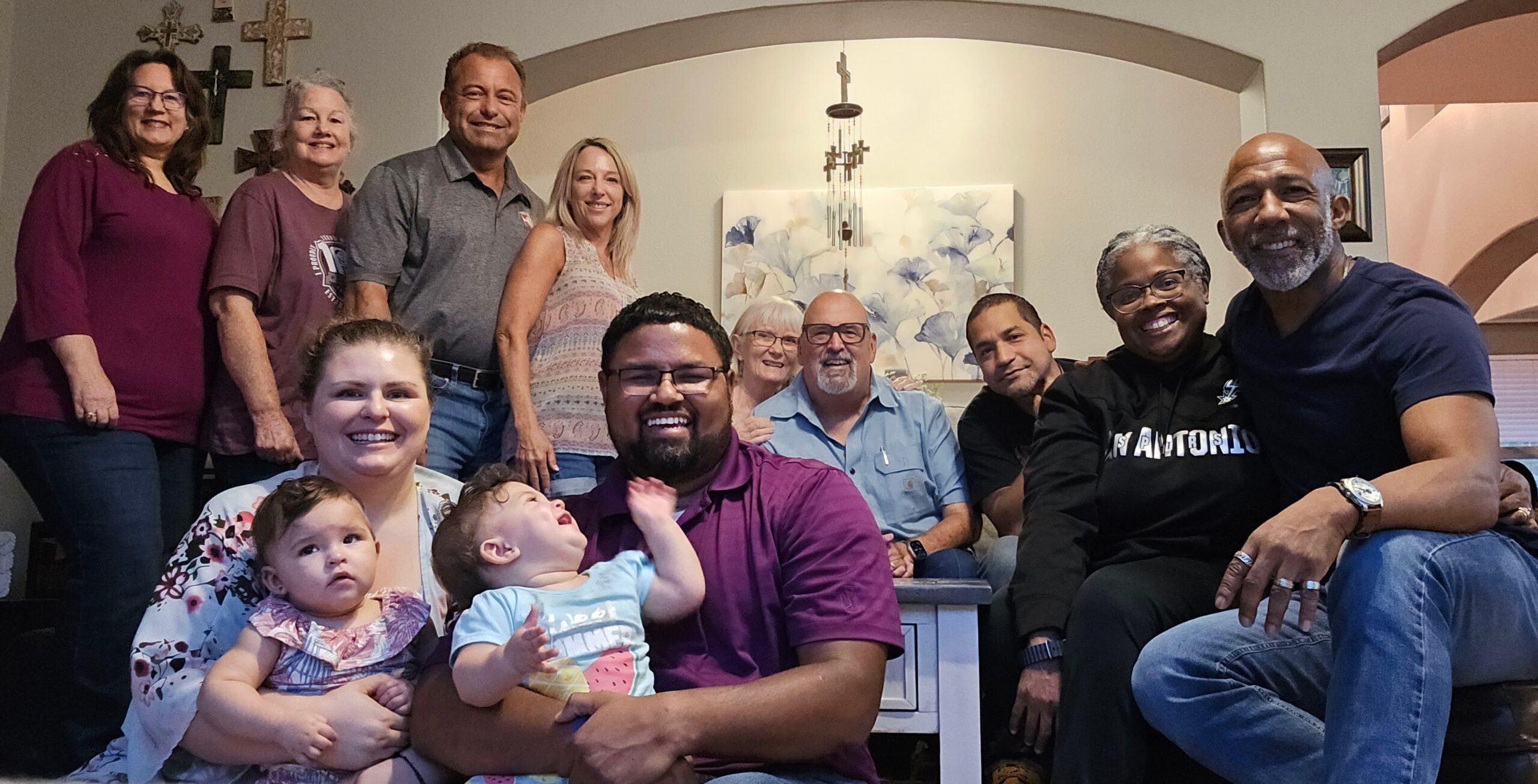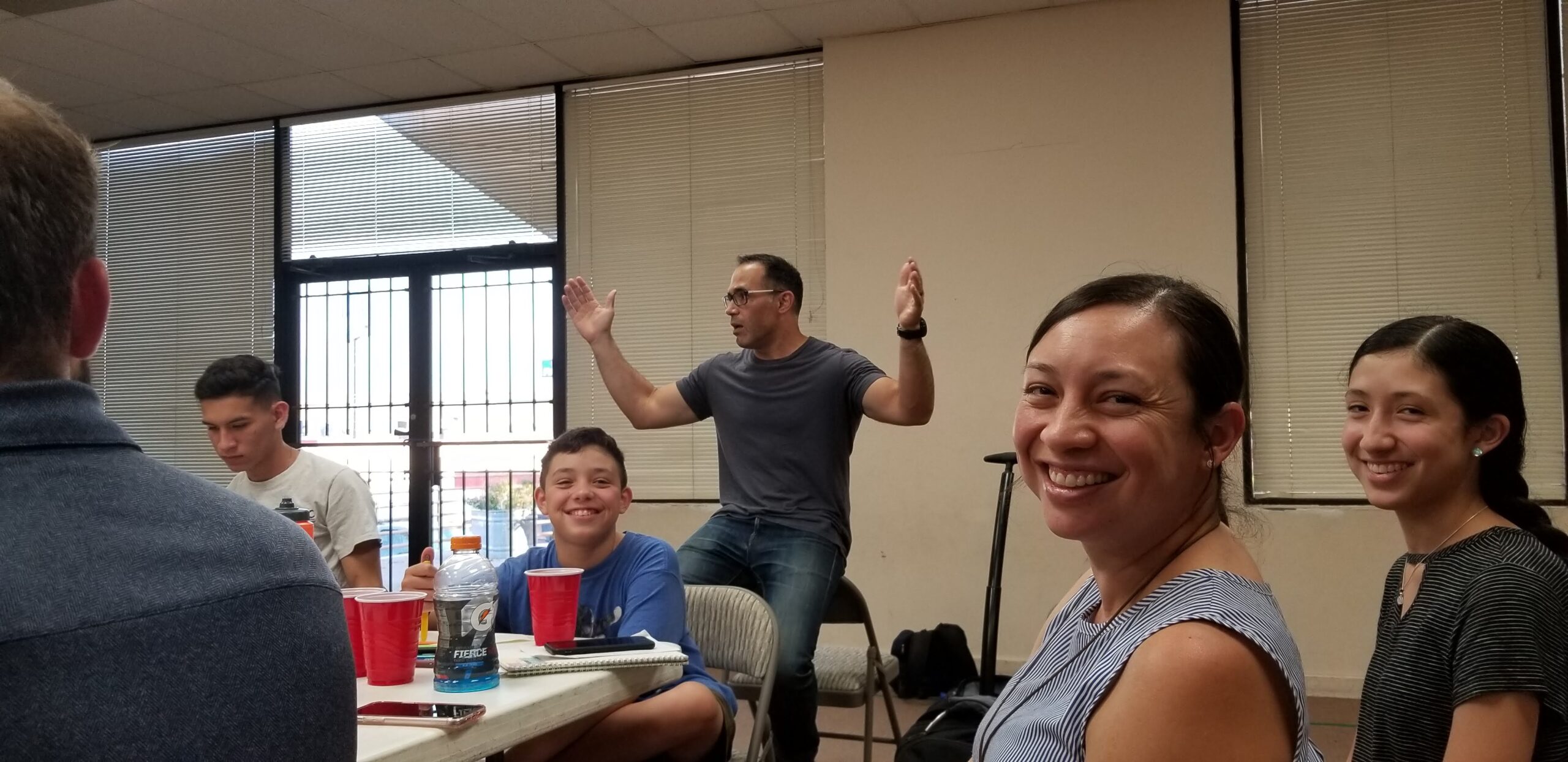Missional Living — When the Kingdom Comes (A Couple Brings Corruption) Part 3 (Acts 4:32-5:11)
1 But a certain man named Ananias, with Sapphira his wife, sold a possession. 2 And he kept back part of the proceeds, his wife also being aware of it, and brought a certain part and laid it at the apostles’ feet. 3 But Peter said, “Ananias, why has Satan filled your heart to lie to the Holy Spirit and keep back part of the price of the land for yourself? 4 While it remained, was it not your own? And after it was sold, was it not in your own control? Why have you conceived this thing in your heart? You have not lied to men but to God.” 5 Then Ananias, hearing these words, fell down and breathed his last. So great fear came upon all those who heard these things. 6 And the young men arose and wrapped him up, carried him out, and buried him. 7 Now it was about three hours later when his wife came in, not knowing what had happened. 8 And Peter answered her, “Tell me whether you sold the land for so much?” She said, “Yes, for so much.” 9 Then Peter said to her, “How is it that you have agreed together to test the Spirit of the Lord? Look, the feet of those who have buried your husband are at the door, and they will carry you out.” 10 Then immediately she fell down at his feet and breathed her last. And the young men came in and found her dead, and carrying her out, buried her by her husband. 11 So great fear came upon all the church and upon all who heard these things.
The But of Acts 5:1 antagonizes the message of Acts 4:32-35. Where Barnabas sold his land and brought the entire proceed to the church for its use, Ananias merely claimed to do this. His sin, with Sapphira his wife, was not in keeping back part of the price of the land. Peter makes it clear that he could have done that (Acts 5:4). There would have been no fault in giving only a portion of the sale to the church. In fact, Ananias could have kept the land in his own possession without there being a problem. His contribution was not compulsory (Acts 5:3-4).
Why did he do it? He and his wife wanted to be counted with the highly committed while still keeping a foot in the world. They wanted a positive nickname too. But, with a discernment that was given to him by the Holy Spirit, Peter explains why the plan would not work:
The Seriousness of Not Seeing the Anointing — Ananias failed to acknowledge the Anointing as he acted out his trespass. Even in the presence of continuous expressions of Heaven’s power (Acts 4:33) he made the mistake of regarding men after the flesh and the fellowship as being no more than what he could see. But the men leading the fellowship were anointed by God and able to do and see things above and beyond what is possible for mere mortals. The fellowship before Ananias and Sapphira is not only with the seen but also with the unseen Spirit of the Lord. The fellowship, treated as common and something to be manipulated, was in fact consecrated. That couple was tragically unholy in dealing with a people made holy by the Spirit of Holiness.
In light of all that Ananias had seen in the way of wonders it is amazing and confounding to Peter that he could have been so dull in thinking that his sin would not be seen. How did Ananias arrive at this point? The answer is that Satan had filled his heart to lie to the Holy Spirit (Acts 5:3). Satan had been at work trying to ruin the new creation. Just as in the garden, that serpent of old (Genesis 3:1,4; 2 Corinthians 11:3; Revelation 12:9; 20:2) had been working to (1) deceive people in paradise and (2) ruin relationships. After a while the arch nemesis of God was able to convince Ananias to lie to the Spirit. What could have been worse than bringing Satan’s corrupting influence entry into the new fellowship? Ananias had allowed Satan to furnish the rooms of his heart with worldly intentions.
Doors for Demonic Activity — When we fail to take our thoughts captive (2 Corinthians 10:4-5; Philippians 4:8) and and refuse to rigorously exclude ungodly desires that would take up residence in our hearts we (1) open doors for demonic activity and (2) create conditions conducive to crimes against God and His community (Ephesians 4:25-27; Romans 12:19; James 4:7).
Action Steps — Let us stop lying and speak truth (Zechariah 8:16; Ephesians 4:15, 25; Colossians 3:9).
-
- Stop Active Lying – Deceptive statements
- Stop Passive Lying – Omissions that mislead
Peter does not punish the man but explains the great foolishness of trying to deceive God; the sin, in this case, is judged by God Himself. Upon hearing these words Ananias dies (Acts 5:5). Sapphira colludes with her husband to mislead the church. But the plan will fail with tragic results. Asked if what she brought was the entire sale price of the land Sapphira, says that it was (Acts 5:8). As in so many Old Testament cases the opportunity to confess was given. Here are ten passages from the Old Testament where God asks a question aimed at prompting confession or self-reflection:
- Genesis 3:9 – After Adam and Eve sinned, God asks Adam, “Where are you?”
- Genesis 4:9 – God asks Cain, “Where is Abel your brother?”
- Genesis 18:13 – “And the Lord said to Abraham, ‘Why did Sarah laugh, saying, ‘Shall I surely bear a child, since I am old?'”
- Genesis 21:17 – God asks Hagar, “What ails you, Hagar?”
- Genesis 32:27 – God asks Jacob, “What is your name?”
- Job 38:4 – God asks Job, “Where were you when I laid the foundations of the earth?”
- 1 Samuel 15:14 – “But Samuel said, ‘What then is this bleating of the sheep in my ears, and the lowing of the oxen which I hear?'”
- Jonah 4:4 – “Then the Lord said, ‘Is it right for you to be angry?'”
- Jeremiah 2:5 – God asks Israel, “What injustice have your fathers found in Me, that they have gone far from Me?”
These passages are instances where God’s questions are used to initiate introspection, catalyze confession, or to elicit a response that reveals deeper truths about the individuals involved. Sapphira did not make the most of her opportunity. If she had, mercy would have been shown:
He who covers his sins will not prosper, But whoever confesses and forsakes them will have mercy. (Proverbs 28:13)
Instead she took the opportunity to confirm her decision to test the Spirit of the Lord. What was the test?
The Test of Ananias and Saphira — Can we get away with lying about our giving in order to get a better status in our church community? Will God know?
She also dies and was carried away to be buried with her husband. Although this is bad, consider with me the consequences. Luke says that the result of this rebuke was that great fear came upon all the church and upon all who heard these things (Acts 5:11). The loss of earthly life has produced in the church a profound reverence for the presence of Christ and the position of the apostles. Christ in our midst at communion is serious; by treating it lightly we bring upon ourselves judgement. Christ at work through the leadership of the apostles is serious; by treating them as mere men the meaning of the miracles is missed and the Presence at work in them is disrespected.
Figure 1 – Signs and their Significance in the Opening of Acts
The immediate deaths of this deceptive couple were a sign indicating a spiritual reality – God does not want or tolerate lying in his church. Just as the signs of Pentecost and the fellowship prayer were not going to be repeated, the immediate deaths of liars in the church is not happening today. But the spiritual reality indicated in the narrative is that with God there is a deep displeasure associated with people in the church lying to one another and to Him. Former is unloving. The latter is dumb; He knows all. Today is the day to stop lying and start telling the truth. We should do this out of reverence for the Holy Spirit in our midst, out of caring for concern for the people that are our brother and sisters in the faith, and with the goal of protecting the quality of our witness. The whole idea of lying is from Satan the father of lies; it is what he had done from the beginning (Genesis 3:1-4). The notion should be arrested and rejected. When we fail to do that the suggestion eventually looks reasonable and becomes sin (Genesis 3:6).
Questions for Community Discussion
- In the verses of Acts 4:32-37 we are given a general description of the character of the new community. How does Luke give us an example of that character?
- Would you be willing to part ways with your stuff to ensure that the needs of other believers in our fellowship are met? What encouragement did they have (Acts 4:33)?
- What explains their ability to show this level of generosity (Ephesians 4:17-21; Romans 5:5; 1 John 5:1)?
- What was the difference between the gift of Barnabas and the gift of Ananias (Acts 4:36-37; 5:1-4)?
- Is your giving about gratitude toward God and worship or is it about garnering praise, creating a perception of piety, and generating an image of generosity.
- Does it matter if your presentation of an offering does not line up with the truth (John 4:24)?
-
Do you think that Ananias was saved? Consider the words of 1 Corinthians 5:5 as you formulate an answer.








